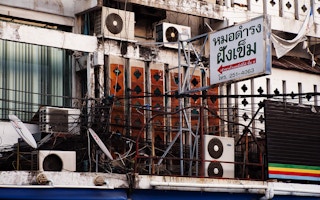Scientists are warning that government policies to rein in energy consumption, partly in response to high power prices, could be putting people’s lives at risk.
A study that examined the results of a campaign launched by the Japanese government in the aftermath of the 2011 Fukushima nuclear disaster showed a spike in mortality among citizens who tried to save energy by powering down their household cooling devices.
According to the research published on Wedneday, as the government then shut down the country’s nuclear reactors, citizens were pressured to curb their energy consumption, with many turning off their air-conditioners to save power. Air-conditioners are one of the most energy-intensive household appliances.
Researchers from the Universities of Hong Kong and Berkeley, California estimate that 7,710 people died prematurely every year as a result of Japan’s energy-saving policies. Around 60 per cent of these excess deaths occurred during the summer, suggesting that a reduction in air-conditioning was a contributing factor.
People switched from using air-conditioning to electric fans, which cut electricity consumption by about 15 per cent.
Such measures could be particularly dangerous in developing tropical countries and become deadlier as global temperatures rise, according to experts.
Extreme heat can affect the body’s ability to regulate its internal temperature and lead to heatstroke and hyperthermia. It can also worsen conditions such as heart and lung disease and diabetes.
These conditions are likely to get more pronounced as planetary heating intensifies.
“
Climate change is already upon us and encouraging less use of air conditioning or other means of adapting to extreme temperatures can kill people.
Guojun He, associate professor, University of Hong Kong
Human-induced climate change was blamed for more than a third of heat-related deaths between 1991 and 2018.
“Policies to reduce energy use and greenhouse gas emissions are important for reducing the severity of climate change,” said Guojun He, associate professor at the University of Hong Kong and co-author of the study.
“But climate change is already upon us and encouraging less use of air-conditioning or other means of adapting to extreme temperatures can kill people living right now.”
Measures taken to curtail energy use in response to the conflict in Ukraine, which has led to soaring energy prices and power outages, have also come with health risks. In France and Britain, governments announced plans for controlled power cuts in case gas supplies were stretched, although an unseasonably warm winter has eased demand for electricity for heating.
He said that a better policy approach than limiting individuals’ electricity consumption is for governments to accelerate the transition to clean energy, enabling more people to access cooling and heating technologies without exacerbating climate change.
Commenting on the study, Jason Lee, associate professor at the National University of Singapore and a specialist in heat resilience, said energy access is much less of an issue for populations in wealthy countries.
“The problem is those who need aircon can’t afford it. And many who can afford aircon don’t really need it. Global warming will only exacerbate inequality,” he told Eco-Business.
As global temperature rise, people in the tropics will be chronically exposed to heat stress. Besides heat-related problems due to acute extreme heat, people will be subjected to other health and work productivity issues, Lee said.
Lee noted that while air-conditioning helps people to cope with extreme heat, too much time spent in air-conditioning will diminish their ability to acclimatise to warm temperatures over the long term.
“Policy measures to reduce the use of energy are wise in general. But to achieve maximum impact, polices need to be more targeted. There is room to promote the use of energy to power aircon for selected vulnerable populations,” he said.
Only 15 per cent of households in Southeast Asia have air-conditioning, compared with more than 90 per cent of households in some developed economies, according to data from the International Energy Agency.
However, rising affluence in Southeast Asia is spurring demand for cooling technologies, which are expected to account for 40 per cent of the region’s electricity demand by 2040. Refrigerants contain potent climate-harming greenhouse gases.
“Policymakers could improve the design of programmes meant to mitigate greenhouse gas emissions, as well as increase the use of clean energy in their communities,” said study co-author Takanao Tanaka of University of California-Berkeley.
“Such changes would be especially beneficial to developing countries as they continue to use more energy, and have the resources to adapt, as they grow. These countries are also often the ones most at risk of hot and rising temperatures,” he said.
Climate scientist Professor Benjamin Horton, director of the Earth Observatory of Singapore, said there is a need to switch to alternatives to air-conditioning to keep people cool, as the technology is carbon-intensive.
“As we live in an increasingly urban world – there are more people living in cities now than lived on the whole planet in 1980 – it is going to be a challenge and an opportunity to cool cities in a sustainable way,” he told Eco-Business.

















